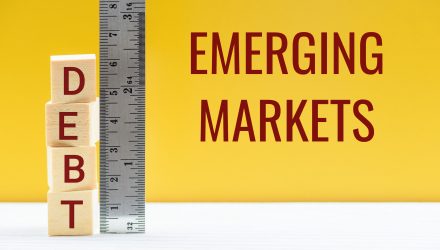The respective currencies of emerging markets are already feeling the ill effects of the coronavirus pandemic, but that’s not all. Like the rest of the world, many companies are facing default on their debt and emerging markets aren’t precluded from that same dilemma.
“The novel coronavirus has brought the world economy to a grinding halt. Global growth is set to fall from 2.9 percent last year into deep negative territory in 2020—the only year besides 2009 that this has happened since World War II,” a Foreign Affairs article highlighted. “Recovery will likely be slow and painful. Government restrictions to prevent the virus from resurging will inhibit production and consumption, as will defaults, bankruptcies, and staffing cuts that have already produced record jobless claims in the United States.”
Even after the coronavirus cases dwindle, the byproduct could be a global recession, which some emerging markets are not prepared to handle.
“But not all countries will bear the pain of the global recession equally. Low-income countries suffer from poor health infrastructure, which inhibits their ability to fight off the coronavirus, and many of them had dangerously high debt levels even before the pandemic necessitated massive emergency spending,” the article noted further. “Foreign investors are now withdrawing capital from emerging markets and returning it to the rich world in search of a safe haven. As a result, countries such as South Africa, Kenya, and Nigeria are seeing their currencies plummet in value—making it difficult, if not impossible, for them to service foreign loans.”
A Relative ETF Play for DMs Over DEs
Weakness in EM means investors looking to take advantage of developed markets can consider the Direxion MSCI Developed Over Emerging Markets ETF (NYSEArca: RWDE). RWDE provides a means to not only see developed markets perform well, but a way to access a convergence/catch-up in performance of DM relative to EM, a spread that has clearly widened over the past 6 months. The fund seeks investment results, before fees and expenses, that track the MSCI EAFE IMI – Emerging Markets IMI 150/50 Return Spread Index.
The index measures the performance of a portfolio that has 150% long exposure to the MSCI EAFE IMI Index (the “Long Component”) and 50% short exposure to the MSCI Emerging Markets IMI Index (the “Short Component”). On a monthly basis, the Index will rebalance such that the weight of the Long Component is equal to 150% and the weight of the Short Component is equal to 50% of the Index value. In tracking the Index, the Fund seeks to provide a vehicle for investors looking to efficiently express a developed over emerging investment view by overweighting exposure to the Long Component and shorting exposure to the Short Component.
For more relative market trends, visit our Relative Value Channel.

